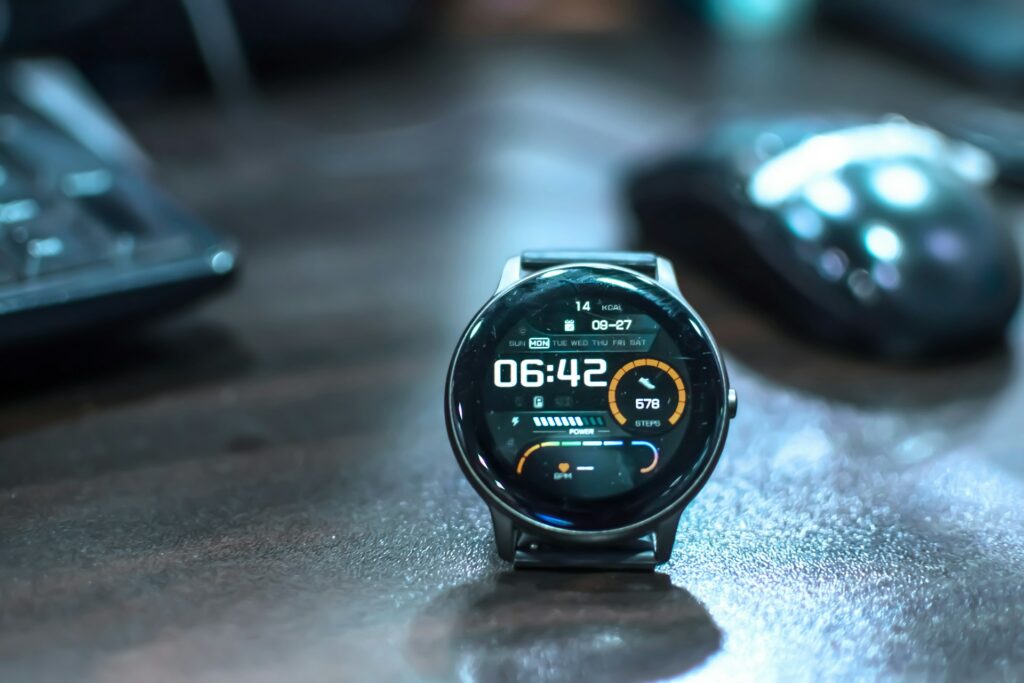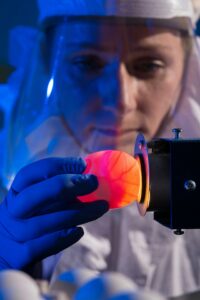Are You Really Able to Save Your Life With a Smartwatch? What New Models Are Capable Of Doing

Are You Really Able to Save Your Life With a Smartwatch? What New Models Are Capable Of Doing
Prior to a few years ago, smartwatches were considered to be nothing more than fashionable accessories or fitness trackers. On the other hand, things have evolved. The smartwatches of today are more like little medical devices that are worn on the wrist. They are able to identify cardiac issues, measure stress, check blood oxygen levels, and even call for assistance when the wearer is unable to do so themselves.
Is it possible that a smartwatch may really save your life? This question is no longer an exaggeration. Quite unexpectedly, the answer is yes, and the technology is just getting better from here on out.
Today’s smartwatches are equipped with life-saving features.
There is a plethora of health-oriented features crammed into the most recent generation of smartwatches from companies such as Apple, Samsung, Garmin, and others. Gimmicks are not the only thing here. In the United States, regulatory agencies such as the Food and Drug Administration (FDA) have given their approval to a significant number of them.
As an example, fall detection is now a feature that is often used. Your watch has the capability to immediately notify emergency services and disclose your position in the event that you slip and fall while remaining still. Numerous lives have already been saved as a result of this, particularly those of elderly individuals and persons who find themselves living alone.
- Then there is the monitoring of your electrocardiogram (ECG), which examines your heart rhythm for indications of atrial fibrillation, a dangerous illness that, if left undetected, may result in a stroke. As a result of using their smartwatches, some individuals have found cardiac problems before they had any symptoms.
Blood oxygen monitoring (SpO2), alarms for irregular heart rate, warnings for sleep apnea, and even detection of stress levels are now integrated in a number of devices. On a day-to-day basis, these qualities may not seem to be very significant; but, if anything seems “off,” your watch could be the first thing to alert you to the fact that something is amiss.
Storytelling from Real Life That Demonstrates the Power
You will often come across stories such as “Smartwatch alerts man to heart condition, saves his life” or “Woman credits Apple Watch for detecting irregular heartbeat.” These are not public relations tales. These are actual instances that are supported by records from hospitals and personal accounts.
While he was at rest, the watch of one of the adolescents alerted him to the fact that his heart rate was dangerously high. A subsequent investigation revealed that he had a concealed ailment that, if left untreated, may have resulted in his death.
When a cyclist was struck unconscious in a remote region, his wristwatch immediately called for assistance. This was another instance of the smartwatch being used. The fact that his watch was able to detect that he was in danger was the reason why emergency personnel came just in time.
Neither of them are miracles. Sensors, data, and algorithms all working together in real time to produce them is what makes them possible.
Who is the Most in Need of These Features?
The use of a smartwatch may be beneficial for anybody, but some individuals will find the safety aspects of the watch to be particularly useful:
- Those who are elderly or who have a previous history of falling or Stroke
- Individuals who suffer from elevated blood pressure or heart issues
- Those who are interested in fitness and wish to track their performance safely
- Parents who are looking for a sense of calm for their children
- Off-grid travelers, often known as hikers, bikers, or vacationers
One of the most compelling arguments in favor of wearing one is the emergency SOS function, which is especially useful for those who live alone or in remote locations.
Rather than Being a Simple Gadget
Smartwatches are still considered to be luxury devices by certain individuals. But if your watch is able to monitor your breathing, alert you to potentially harmful sleep patterns, identify early warning signals of a heart attack, and relay your GPS position to emergency services, then it is no longer simply a gadget. It is a means of survival.
In addition, in contrast to our phones, which we often forget to turn off or ignore while we are in another room, a wristwatch is always with you. The fact that it is always there is what gives it the ability to save lives.
The Future Will Be Even More Aware
In the future, smartwatches will become even more sophisticated than they now are. There has been discussion on the possibility of non-invasive glucose monitoring for diabetics, the study of mental health via skin temperature and voice tone, and even the early diagnosis of illnesses such as COVID or the flu through the use of biometric signals.
In the not too distant future, your watch may be able to detect that you are becoming ill before you really do, and it may also provide advice on how to treat the condition.
Is It Really Worth It?
The value that smartwatches provide in terms of peace of mind, health monitoring, and safety cannot be emphasized, despite the fact that they are still considered an investment opportunity. The concept of having a little gadget that silently monitors your health in the background is no longer science fiction; rather, it is now a contemporary reality. This is true regardless of whether you are 25 or 75 years old.
As a result, a smartwatch may, in fact, save your life. And in the modern world, when everything is changing so quickly, it might be one of the most astute choices you make.






